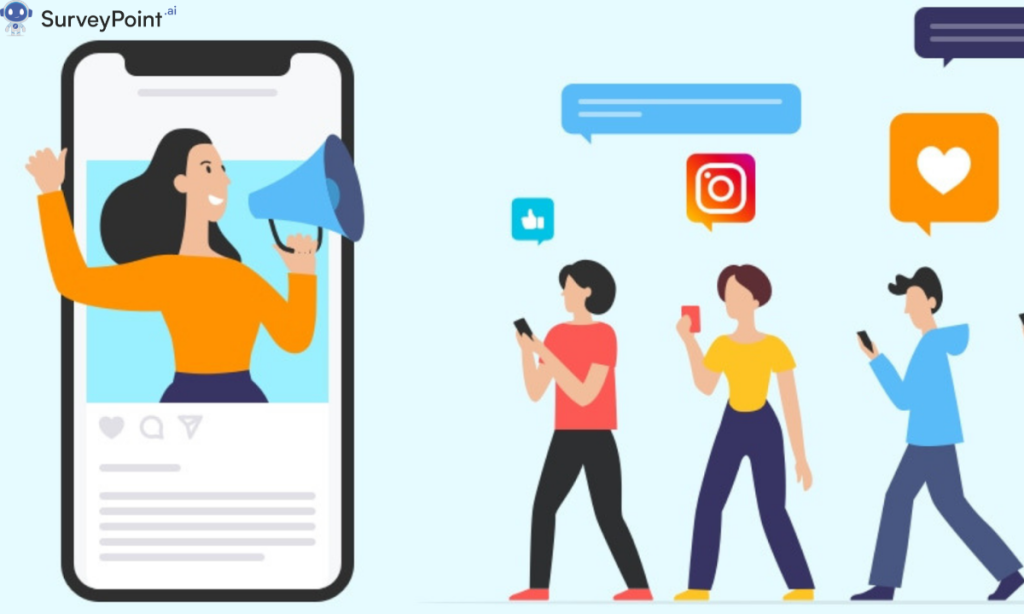
Influencer marketing has revolutionized the way brands connect with consumers. In today’s digital age, influencers—individuals with a significant and engaged following on social media—play a crucial role in shaping opinions, trends, and purchasing decisions. This blog explores the concept of influencer marketing, how it works, and the various ways influencers earn money.
What is Influencer Marketing?
Influencer marketing is a strategy where brands collaborate with influencers to promote their products or services. These influencers have built a loyal audience that trusts their recommendations, making them valuable partners for brands looking to reach specific demographics. Unlike traditional advertising, influencer marketing leverages the authenticity and credibility of influencers to create genuine connections with consumers.
How Influencer Marketing Works
1. Identifying the Right Influencer
Brands must carefully select influencers whose audience aligns with their target market. This involves analyzing the influencer’s niche, follower demographics, engagement rates, and content style.
2. Establishing a Partnership
Once an influencer is chosen, the brand and influencer negotiate the terms of the partnership. This includes the type of content to be created, compensation, campaign duration, and performance metrics.
3. Creating Authentic Content
Influencers create content that showcases the brand’s products or services in an authentic and relatable way. This can include sponsored posts, product reviews, unboxing videos, and tutorials. The goal is to integrate the brand seamlessly into the influencer’s content.
4. Distributing the Content
The influencer shares the content on their social media platforms, reaching their followers and driving engagement. Brands may also amplify this content through paid advertising and cross-promotion on their own channels.
5. Measuring Success
Brands track the performance of influencer marketing campaigns using metrics such as reach, engagement, website traffic, and conversions. These insights help evaluate the campaign’s effectiveness and inform future strategies.
How Influencers Earn Money
Influencers can monetize their online presence in various ways. Here are some of the most common revenue streams for influencers:
1. Sponsored Content
The primary source of income for many influencers is sponsored content. Brands pay influencers to create and share posts that promote their products or services. The payment can be a flat fee, commission-based, or a combination of both. Influencers with larger followings and higher engagement rates can command higher fees for sponsored content.
2. Affiliate Marketing
In affiliate marketing, influencers earn a commission for driving sales through unique referral links or discount codes. When followers purchase a product using the influencer’s link or code, the influencer receives a percentage of the sale. This model incentivizes influencers to create compelling content that encourages their audience to make purchases.
3. Brand Ambassadorships
Long-term partnerships with brands, known as brand ambassadorships, provide influencers with a steady income stream. Brand ambassadors represent the brand over an extended period, often participating in multiple campaigns and events. This deepens the influencer’s connection with the brand and creates consistent promotional opportunities.
4. Ad Revenue
Influencers on platforms like YouTube and TikTok can earn money through ad revenue. These platforms display ads on the influencer’s videos, and the influencer receives a share of the ad revenue based on the number of views and engagement. The more popular the content, the higher the ad revenue.
5. Product Collaborations
Some influencers collaborate with brands to create co-branded products. This can include clothing lines, beauty products, or digital goods. Influencers earn a percentage of the sales from these collaborations, which can be highly lucrative if the products resonate with their audience.
6. Merchandise Sales
Many influencers launch their own merchandise, such as clothing, accessories, or digital products like e-books and online courses. Selling merchandise allows influencers to monetize their brand directly and build a deeper connection with their followers.
7. Crowdfunding and Donations
Platforms like Patreon enable influencers to receive direct financial support from their followers. Fans can subscribe to different tiers of support, gaining access to exclusive content, behind-the-scenes updates, and personalized interactions. This model allows influencers to earn a stable income while fostering a close-knit community.
8. Public Speaking and Events
Influencers with expertise in their niche may be invited to speak at conferences, participate in panels, or host workshops. These opportunities provide additional income and help influencers expand their reach and credibility within their industry.
Maximizing Success in Influencer Marketing
For influencers looking to maximize their earning potential, here are some key strategies:
1. Build a Strong Personal Brand
A strong personal brand is essential for attracting sponsorships and collaborations. Influencers should focus on creating consistent, high-quality content that reflects their unique voice and values.
2. Engage with Followers
Building and maintaining a loyal audience requires active engagement. Influencers should respond to comments, interact with followers, and create content that resonates with their audience’s interests and needs.
3. Diversify Income Streams
Relying on a single source of income can be risky. Influencers should explore multiple revenue streams, such as sponsored content, affiliate marketing, and merchandise sales, to ensure financial stability.
4. Stay Authentic
Authenticity is crucial in influencer marketing. Influencers should partner with brands that align with their values and genuinely appeal to their audience. Authentic endorsements build trust and credibility, leading to more successful campaigns.
5. Measure and Adapt
Regularly analyzing the performance of their content and campaigns helps influencers understand what works and what doesn’t. Using these insights, influencers can refine their strategies and continually improve their impact and earning potential.
Conclusion
Influencer marketing is a powerful tool for brands and a lucrative career path for influencers. By creating authentic content and leveraging their engaged audience, influencers can earn money through various revenue streams, from sponsored posts to merchandise sales. For both brands and influencers, understanding the dynamics of influencer marketing and continuously adapting to the evolving digital landscape is key to success. As the industry grows, so do the opportunities for influencers to turn their online presence into a profitable and impactful career. For more information checkout- surveypoint.ai




